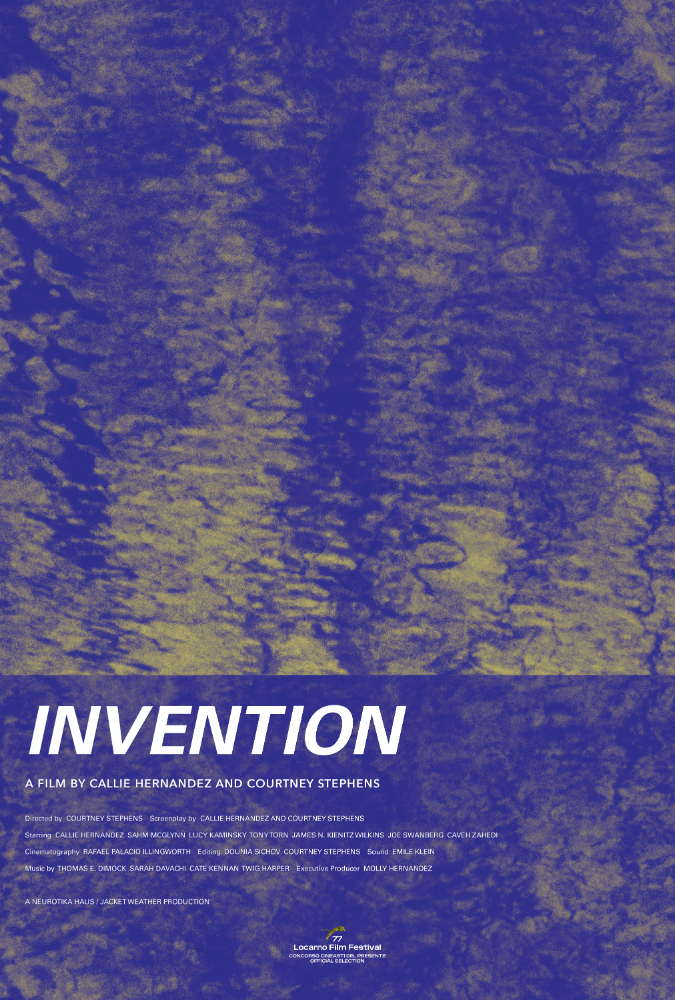In March I had the fortune to see a rough cut of Invention, a new film by Courtney Stephens (Terra Femme, The American Sector) that toes the documentary-fiction boundary more nimbly than most: it stars Callie Hernandez as a woman seeking clarification on the death of her inventor father (Hernandez’s own, glimpsed through archival footage) the aftermath of whose death spans the clerical and conspiratorial. Stephens interpolates conversations (both expository and atmospheric) with sequences that might be dreams, fantasies, or emanations from one of her father’s creations. Even as an enthusiast of Stephens’ work I wasn’t entirely prepared for the experience, but understood it was unlike any recent narrative film. Whether or not other human beings would ever see it was even less certain.
And now Invention, credited to both director and star, premieres at this year’s Locarno International Film Festival, ahead of which we’re pleased to debut its trailer. As an official synopsis goes, “In the aftermath of a conspiracy-minded father’s unexpected death, his daughter receives his patent for an experimental healing device. Featuring archive from actress Callie Hernandez’s actual late father, Invention explores the process of grieving a complicated parent, and the filmmaking itself becomes a part of the process.”
Here’s how Stephens frames Invention: “In my films I’ve often worked with found elements, exploring the unconscious currents running within media like advertisements, home movies, and the news. It was a privilege, in this project, to connect elements of archive and American ephemera with realms of private emotion. Callie’s willingness to explore the realm between fiction and non-fiction allowed us to locate a set of coordinates that could shift seamlessly between the non-fiction space of invention and processing, and the fiction world of the film itself. What does fantasy provide us as a form? How does it ferry us through realities we don’t know how to adjust to? Having studied medical anthropology, I’m interested in the shape of knowledge and belief systems, and also in how we participate in the belief systems and fantasy lives of those we love; how that participation is sometimes even a condition of love. Does entering other people’s fictions come at some peril to ourselves? The film also hints at the attrition of a certain kind of national fiction – suggesting how America itself is becoming more and more fantasmatic.”
Meanwhile, Hernandez had this to say: “Knowing that Courtney was also in the unfortunate club of having a dead dad, I approached her about making a film together and it felt appropriate that we should collaborate. I was interested in the unsettling aspects of irreversibility and what it does to a person; the very thing we can’t change in real time, but we do try. Grief can be a conspiracy in-and-of-itself and was something I wanted to investigate through the process of making this film. And so – we did.”
Find preview and poster below:

